
Our #autism #microbiome paper “Autism-related dietary preferences mediate autism-microbiome associations” is out in @CellCellPress today! authors.elsevier.com/c/1e3XWL7PXf05V Thread below (1/n) 👇: 
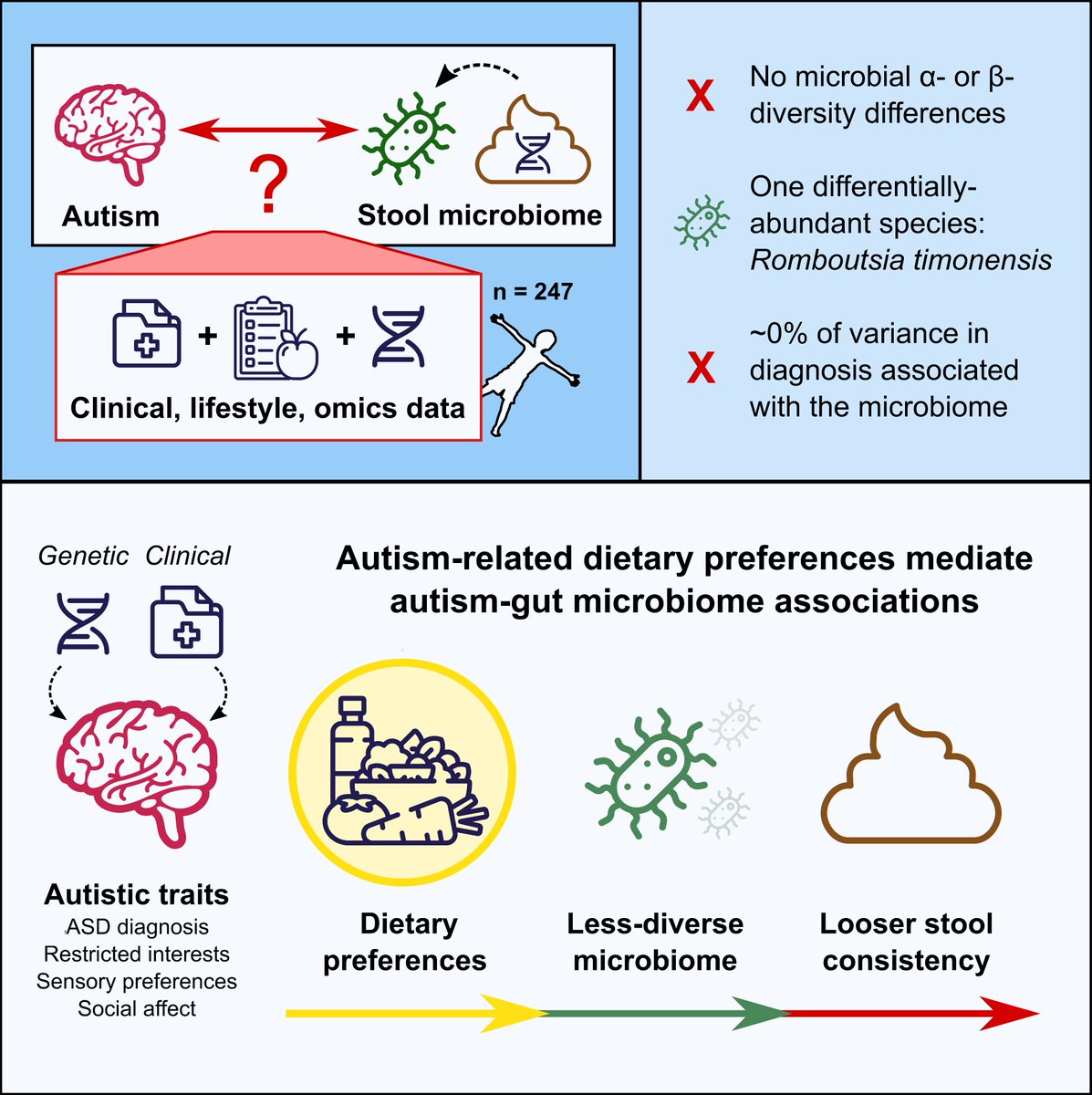
There’s been a lot of speculation about autism and the gut microbiome. But the “hype” has outstripped the evidence. A PubMed search in April 2021 found 56 review articles, versus 26 primary research articles in a recent meta-analysis: gutpathogens.biomedcentral.com/articles/10.11…
The “hype” has led to “therapies” marketed to parents claiming to support autistic children by changing the microbiome (probiotics, supplements, diets, faecal microbiota transplants). These come with significant cost, possible health risks, and unclear benefit.
We performed one of the largest autism microbiome (metagenomics @MicrobaOfficial) studies to date: 247 children from the Australian Autism Biobank @AutismCRC and QTAB @QldBrainInst – both datasets with deep clinical and biological data. 
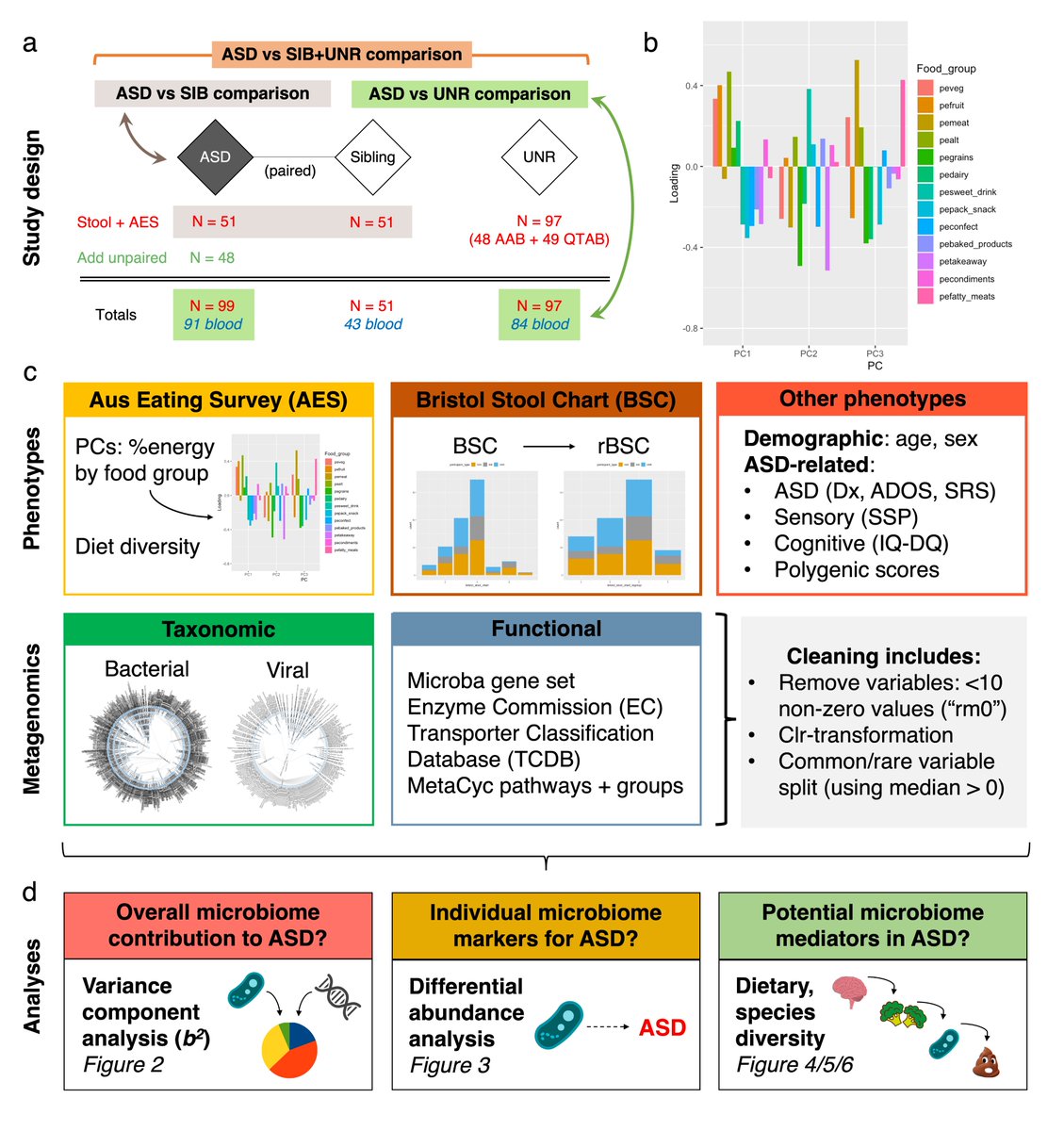
How much of the variance in traits is associated with the microbiome as a whole? We found strong associations between the microbiome and age, stool and dietary traits, but not with autism (or IQ/DQ or sleep problems). 
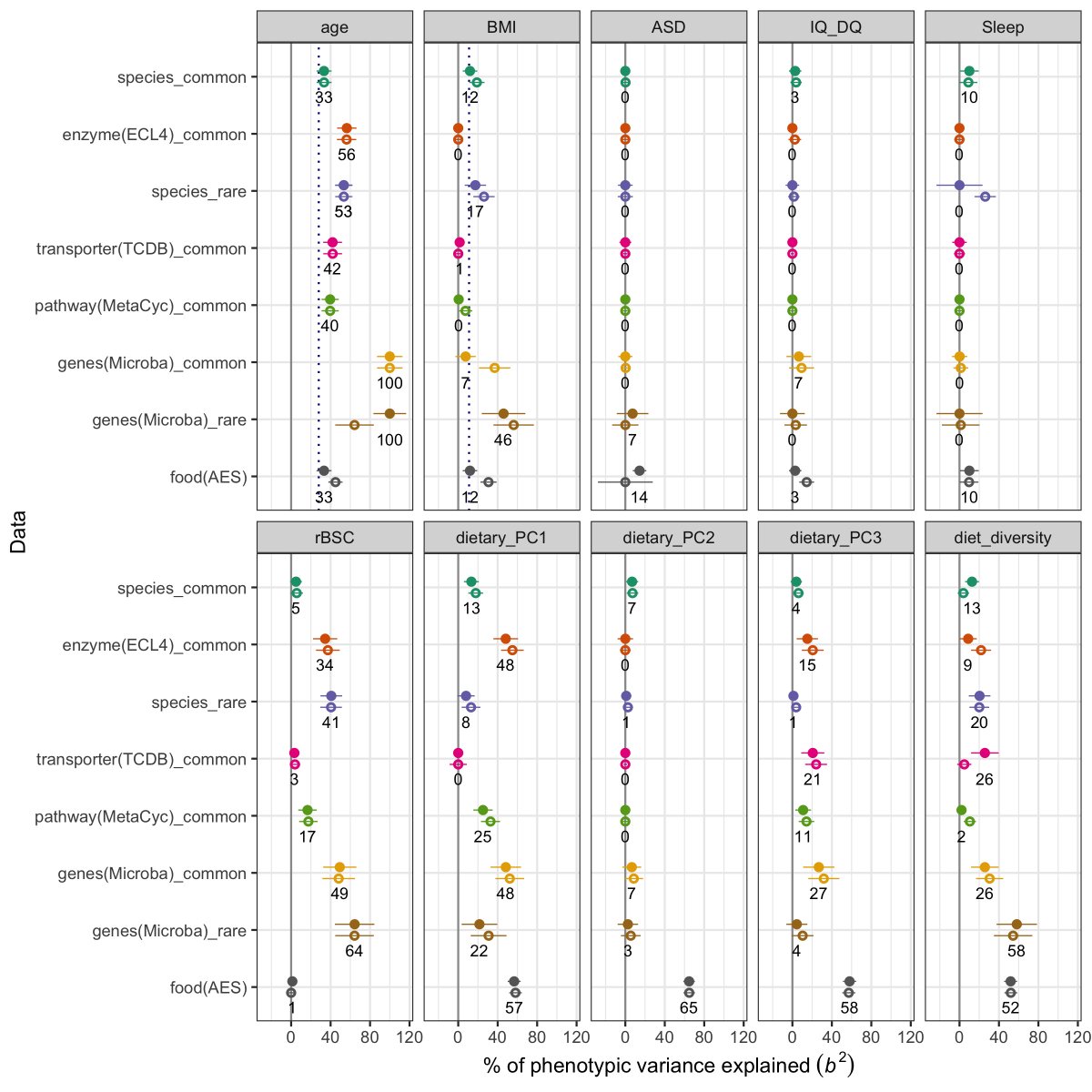
Are individual species associated with autism diagnosis? Only one of 607 species (Romboutsia timonensis) was differentially abundant (lower) in the ASD group. We couldn’t replicate previous associations, but we do note that R.timonensis does belong to the Clostridia class. 
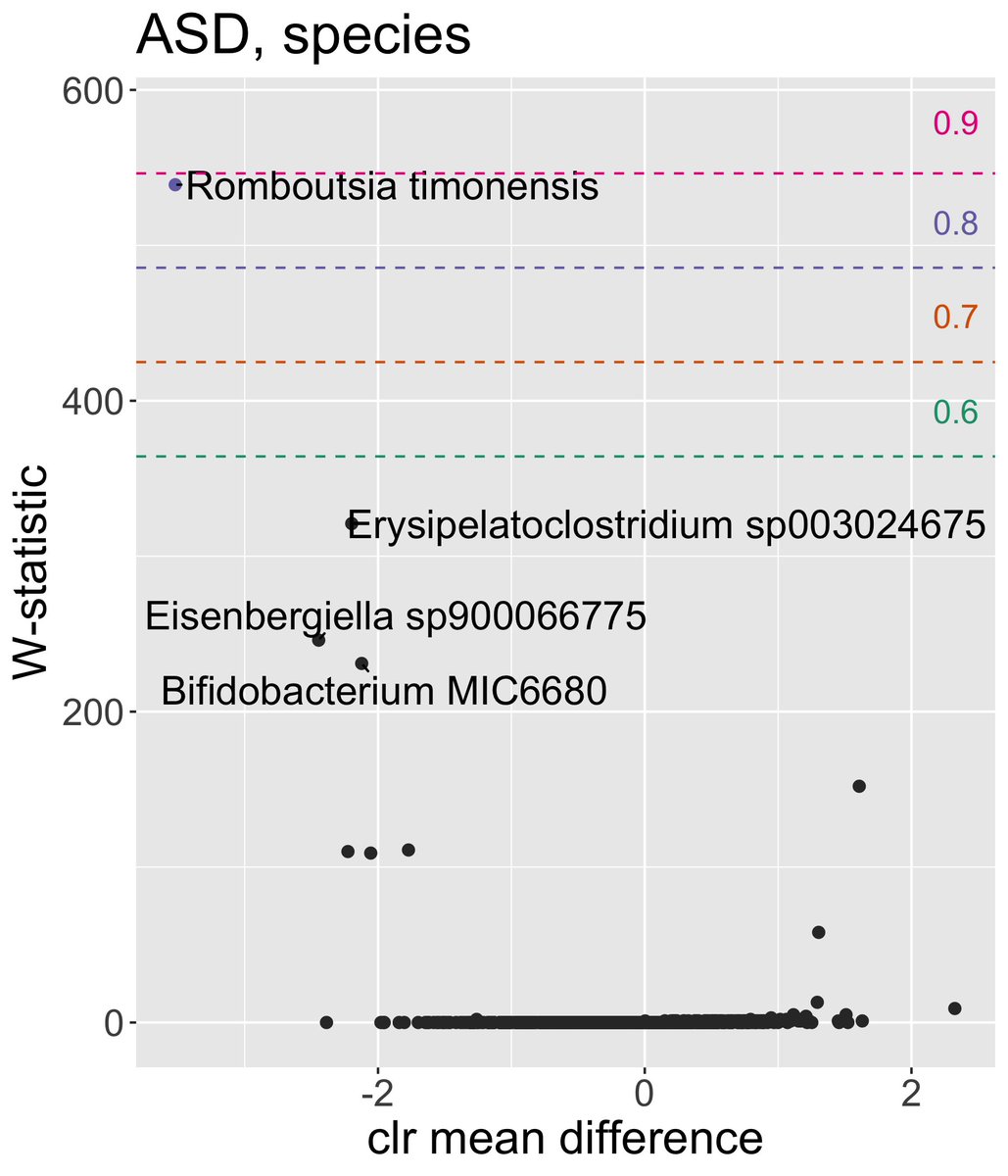
We also didn’t find differences in microbiome diversity (alpha or beta).
At this point, things were all looking a bit flat.
At this point, things were all looking a bit flat.
We then turned to the diagnostic domains of autism, hypothesising that autism-associated restricted interests may manifest as restricted (less-diverse) diet … It was! Autism diagnosis was associated with lower dietary diversity and poorer dietary quality. 
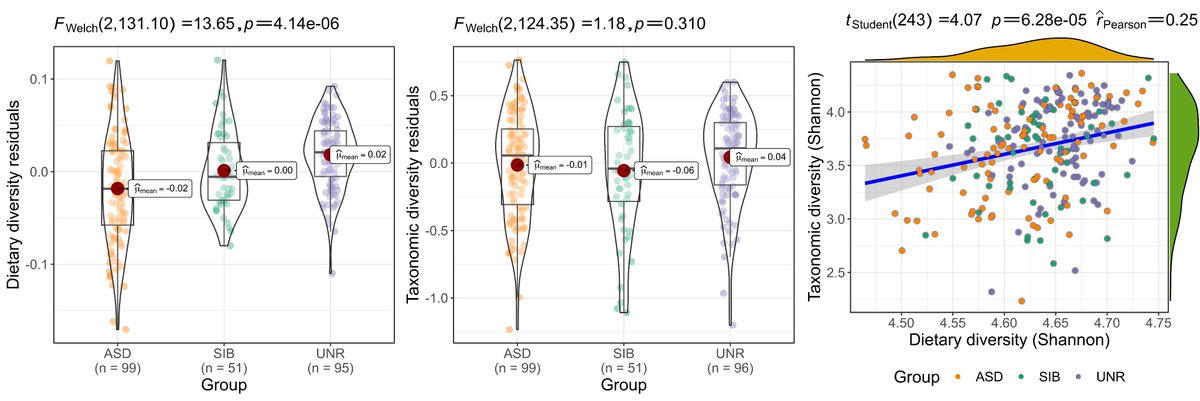
Microbiome diversity correlated with dietary diversity (but not with autism), suggesting that microbiome changes were “downstream”. A less-diverse microbiome was associated with runnier stool consistency. This is interesting, as gut issues are common among autistic children. 
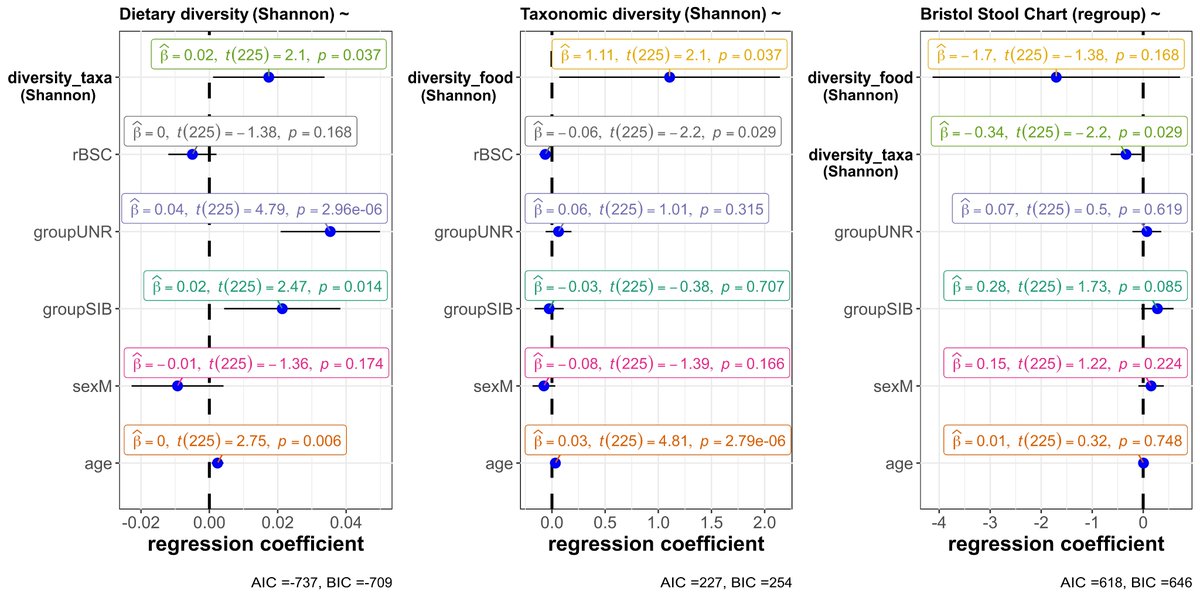
Potential mechanisms? Autism-related restricted and repetitive interests and sensory sensitivity seem to drive dietary preferences. This makes sense: some autistic children prefer to keep eating the same foods, or may perceive certain tastes, smells and textures as off-putting. 
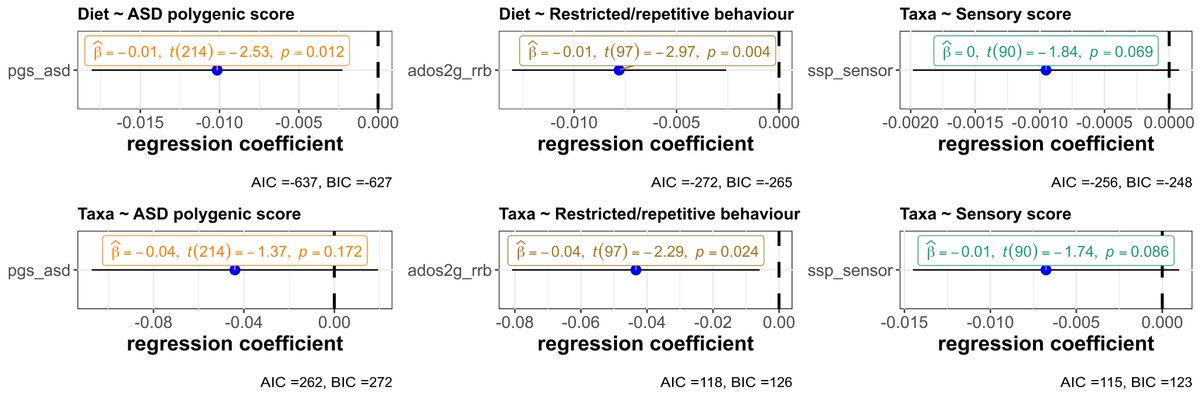
Our results were supported by genetic evidence. We found significant relationships between dietary diversity and polygenic scores for autism and marginally for restricted interests. These genetic proxies allow us to suggest causal inference, ~removing environmental effects.
We ran +++ sensitivity analyses: without covariates, reducing the age range, different metagenomics database, antibiotic/probiotic use, excluding sibs, only looking at sibling pairs, using different alpha-diversity measures, etc. Our results persisted.
In short, we didn’t find that the microbiome contributes to autism. Instead, it looks like autistic traits and dietary preferences drive microbiome differences. Or a case of “mind over microbes”. 
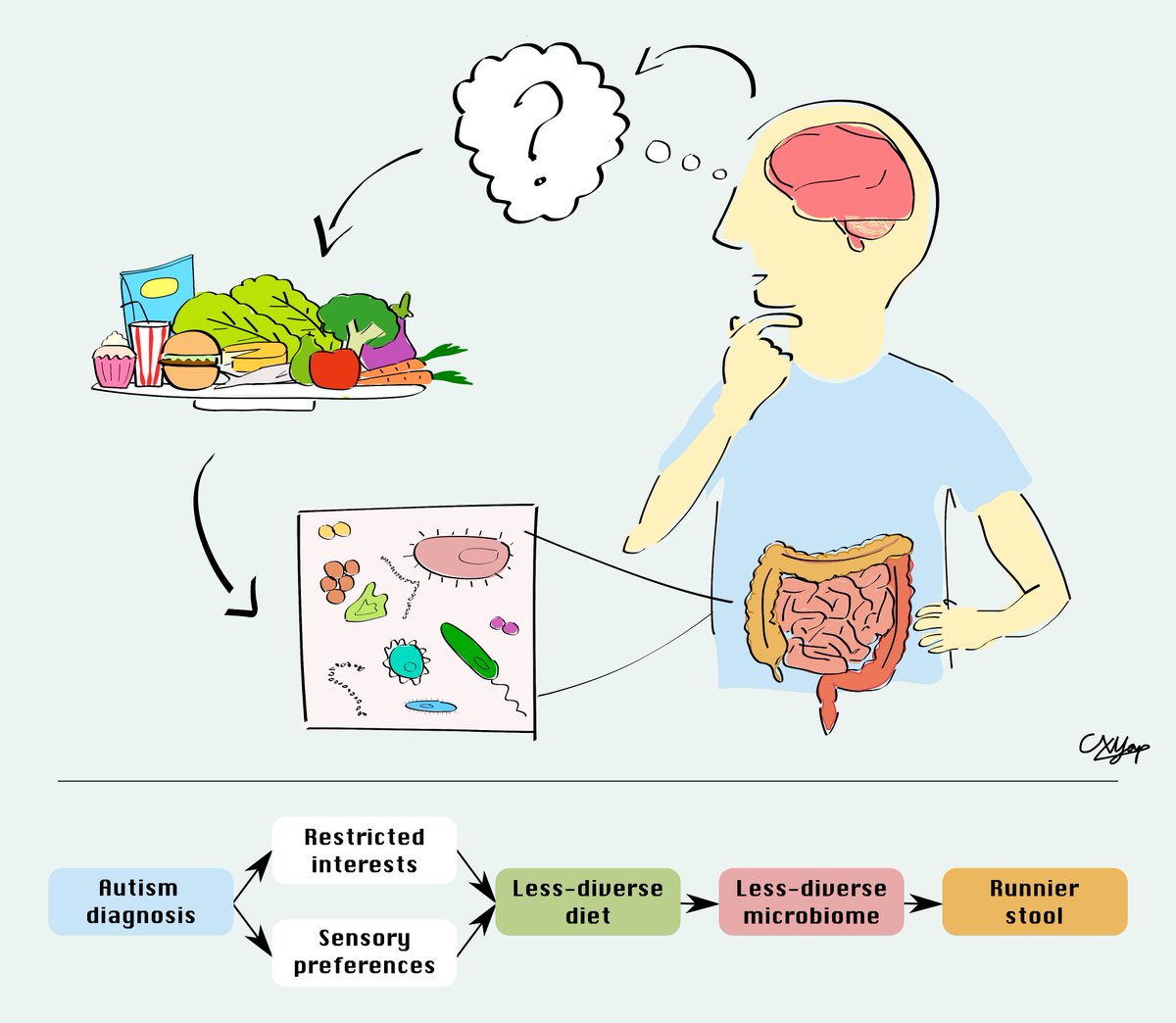
Takeaways:
1. Clarity and guidance to families: microbiome “therapies” for autism should be viewed with caution. They might do more harm than good.
2. Shift the spotlight: the clinical importance of diet for children on the spectrum. We need to support families at mealtimes.
1. Clarity and guidance to families: microbiome “therapies” for autism should be viewed with caution. They might do more harm than good.
2. Shift the spotlight: the clinical importance of diet for children on the spectrum. We need to support families at mealtimes.
Hugest thanks🙏: the families, @AutismCRC @MaterResearch @IMBatUQ @PCTGenomics @UQMedicine @TRI_info @telethonkids @childhealthqld @UNSWMedicine @LTUresearchers @OlgaTennison @QldBraininst @MicrobaOfficial. And Jake Gratten, @WrayNaomi and @AJOWhitehouse for amazing mentorship!
More info:
@AutismCRC factsheet and FAQs: autismcrc.com.au/news/latest-ne…
@ConversationEDU article: theconversation.com/gut-bacteria-d…
@AutismCRC factsheet and FAQs: autismcrc.com.au/news/latest-ne…
@ConversationEDU article: theconversation.com/gut-bacteria-d…
• • •
Missing some Tweet in this thread? You can try to
force a refresh



